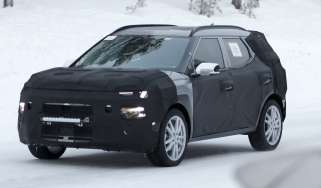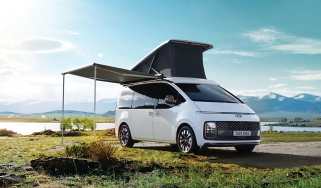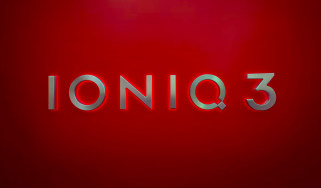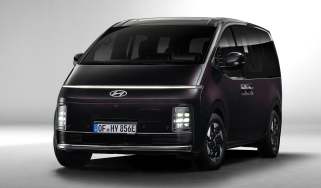Is there a place for hydrogen in the zero-emissions future? Hyundai has the answers
The Korean firm is forging ahead with hydrogen, showing off its latest hydrogen technology at CES 2024
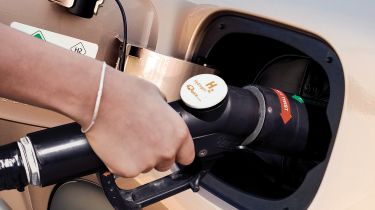
Hyundai was one of the headline car manufacturers at the 2024 Consumer Electronics Show (CES) in Las Vegas, presenting products covering a wide range of fields. As well as showing the Supernal S-A2 electric VTOL passenger craft, autonomous plant machinery and future mobility through the use of autonomous pod systems, The Korean brand also presented its vision for future hydrogen cars.
The switch to hydrogen is part of Hyundai's aim to become carbon neutral by 2045, and CES featured the latest developments for its HTwo hydrogen brand. This included new processes to make hydrogen from plastic waste and biowaste, while the company's display also showcased new solutions for transportation and storage.
But with hydrogen power still seeming like it's a long way away - especially in the UK where the number of public hydrogen fuelling stations can be counted on the fingers of one hand - it can be hard to envisage it as a realistic option for consumers. To get the lowdown on Hyundai's vision of hydrogen power, we spoke to Martin Zeilinger, Hyundai's executive vice president of light commercial vehicle technology, about hydrogen's place in the market and why the company sees it as an energy solution.
Q&A: Martin Zeilinger, Hyundai VP of light commercial vehicle technology
Q: Hydrogen has always been an energy source that's coming soon. Are we any closer to actually having more hydrogen vehicles on the road?
A: Well, if you look at my workplace at the R&D centre in Korea, we already have hundreds of city buses running all over the country - there are a few more battery electric buses, but hydrogen is out and running, and is no problem at all. We have also deployed our fuel cell heavy duty trucks in Korea, and also in Switzerland and Germany, where we have accumulated more than eight and a half million kilometres in that fleet. And then we are expanding to other markets, with demos in New Zealand, Israel, the Emirates and also in the United Kingdom.
Q: Do you see commercial vehicles as the best application for hydrogen at the moment? And in terms of scalability, how small can you go for it to still be justifiable?
A: One thing we don't say is that one technology is superior to the other [when comparing battery and hydrogen vehicles]. Everything has its position depending on the segment and use case. We believe that urban deliveries with vans up to three and a half tonnes, maybe even trucks under seven tonnes, then battery can be a good solution. If you have the time to recharge overnight, only driving one shift and you're not super critical with payload, battery electric makes sense.
It's a carry over from our passenger cars, where we have super-high volume and it's up to date, with 800 volts [power system] and battery materials. On heavy-duty vehicles - buses or trucks – the situation may be different because of the energy consumption you need for your operation. The higher weight and longer ranges you want increase the appeal of hydrogen because it has more energy density, because you can carry more energy and the refuelling to get back to full charge is faster. It's a question of minutes, not hours.
Q: In terms of refuelling, would Hyundai be open to having their own hydrogen stations to help accelerate hydrogen uptake, much like Tesla did with its Supercharger network?
A: The clear message from Hyundai is that we want to tap into the value chain. Not only do we build the vehicles, but within the group there are the affiliate companies that are investing in hydrogen production, compression and transportation. So we are investigating and we are committed to do our best in the entire value chain to steer that to avoid those problems you are seeing. And it's a strategy. Yeah.
Q: And is the hydrogen plan something that starts in Korea and then expands from there?
A: That's our natural habitat, so yes, but maybe there are other relevant markets where we can set up the infrastructure. Talking about the example of the UK, if there is no hydrogen truck, you will not build infrastructure because there's no uptake, yet if there is no infrastructure, you cannot operate. It goes hand in hand.
There is a strong commitment in Korea for the government to invest in infrastructure. It's a small country with 50 million people and we already have 160 hydrogen refuelling stations, and it's growing. If there is a governmental interest for decarbonisation, and if there is the investment, you can do it, but the industry will never do it alone. There must be some kind of subsidy to help establish those things.
Q: Hyundai builds some great electric cars, so is there scope for you for producing hydrogen cars that would have that same kind of attraction to persuade people to switch?
A: To be very honest, it will be buses and trucks that will enable the technology. If we focus on the commercial vehicles, then that would help to establish the infrastructure because the uptake is higher, and it will pay off for the hydrogen infrastructure investment. If then the infrastructure is well established, then why not use it for passenger cars, too?
What are your thoughts on using hydrogen as a fuel? Tell us in the comments section below...


